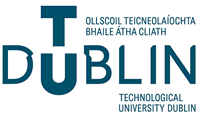Dr K Murphy
No more applications being accepted
Funded PhD Project (Students Worldwide)
About the Project
HoloWave is an applied research project, funded by Science Foundation Ireland, to create holograms by recording controllable nanoscale structures in photopolymer, a polymer material which is sensitive to light. The holograms created by this process will be used in devices called wavefront sensors – which can extremely accurately measure the phase of light. This method will allow for the manufacture of extremely fast and sensitive wavefront sensors, at a reduced cost. These new holographic wavefront sensors will have applications in diagnosing eye conditions, increasing information that can be carried by optical fibres and improving images taken by telescopes and microscopes.
HoloWave will be at the forefront of the effort to control the phase of light, by investigating novel techniques to measure and quantify an optical wavefronts phase, and demonstrate potential high-impact applications. This will be achieved by utilising holographic methods to develop a new class of Analog Holographic Wavefront Sensors (A-HWFS). HoloWave will conduct collaborative applied research to provide outputs beyond the state-of-the art. HoloWave’s aim is to design, develop and construct, in self-developing photopolymer, a suite of novel and robust A-HWFS, to accurately and rapidly detect an optical wavefronts phase, and demonstrate their potential in identified high-impact applications (Ophthalmic Aberrometry and Optical Communications Systems). It will conceive, optimise and implement novel and radical AHWFS of two classes: modal and zonal sensors.
HoloWave Key Objectives:
1. Develop and test robust A-HWFS in a photopolymer medium.
2. Devise a series of completely novel and disruptive A-HWFS in photopolymer.
3. Implement and demonstrate potential, high-impact applications for A-HWFS in the laboratory.
4. Results dissemination and communication (including publications in top-tier research journals).
The PhD candidates research will focus on developing the zonal A-HWFS, work in anisotropic photopolymers with collaborators in the Bulgarian Academy of Sciences and building one of the laboratory demonstrators.
Student requirements for this project
Min. 2.1 Hons Level 8 degree in Optics, Physics or Material Science.
If you are interested in submitting an application for this project, please complete an Expression of Interest and email it to [Email Address Removed] and [Email Address Removed].
Funding Notes
Fully Funded by SFI (Science Foundation Ireland)
Student Stipend € 18,000 p.a.
Materials/ Travel etc (Significant travel & materials budget available as part of the wider project funds)
Fees € 4,500 p.a.

 Continue with Facebook
Continue with Facebook

